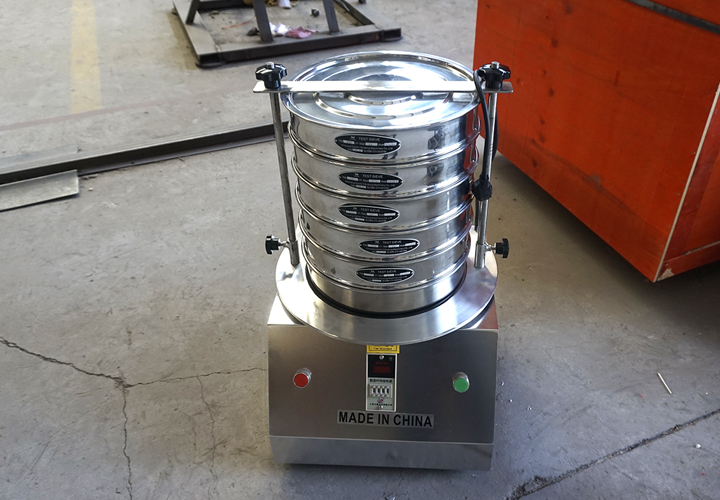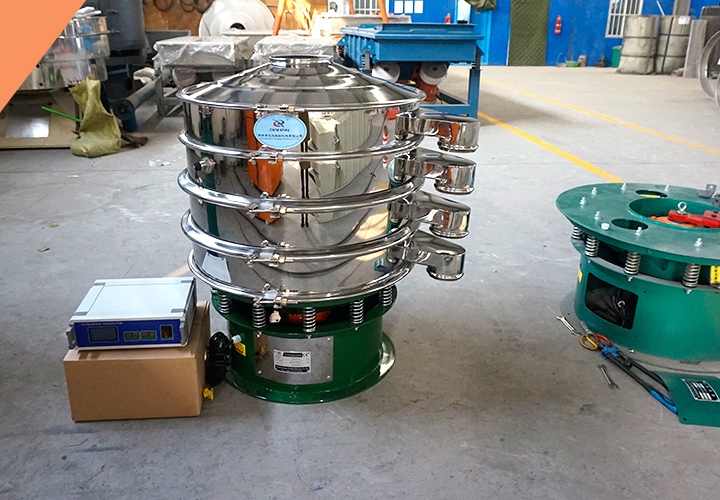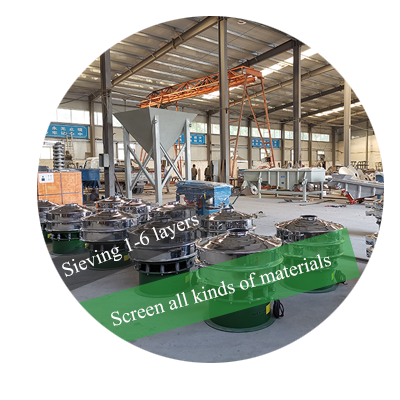Standard test sieve price
Standard test sieve price vary depending on size and material, with typical prices ranging from $20 to $300. Available in a variety of sizes, including 3-inch and 8-inch diameter sieves, these sieves are made of brass or stainless steel, with mesh materials like woven wire mesh and electroformed metal plates. standard test sieve can separate everything from dry, free-flowing flour and cement to cohesive salts and sugars, and even damp, easily clump-forming quartz sand and mineral powders.
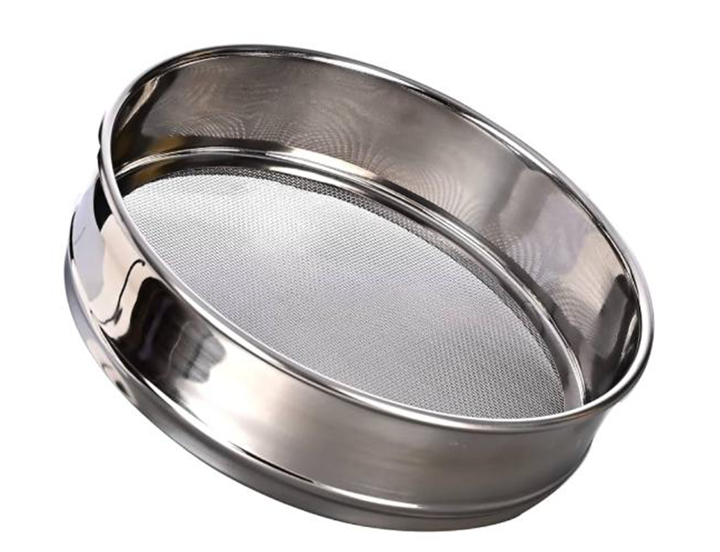
Standard test sieve sizes typically conform to ISO 3310-1 or ASTM E11. Common sieve sizes include 76mm, 150mm, 200mm, and 300mm, with mesh sizes ranging from 20μm to 100mm,smaller sieve apertures increase manufacturing and inspection costs, thus raising the price of standard test sieves.Sieve frames come in both full-height and half-height styles,full-height frames are taller and use more materials than half-height frames, therefore they are more expensive,the advantage of half-height frames is that they allow for more stacked sieves, saving space.
Standard test sieve video display
Relationship between sieve aperture diameter and equipment price
Standard test sieves with a 76mm aperture are suitable for small amounts of fine materials such as laboratory powders and pharmaceuticals. They offer high screening accuracy but low throughput, and are priced between $100 and $300. A 200mm aperture can screen granular materials such as soil, sand, gravel, and abrasives, accurately separating them into multiple particle segments, and are priced between $300 and $700. A 400mm aperture is suitable for large-volume material analysis, such as ore and coal particle size analysis, and offers high throughput, priced between $500 and $900.
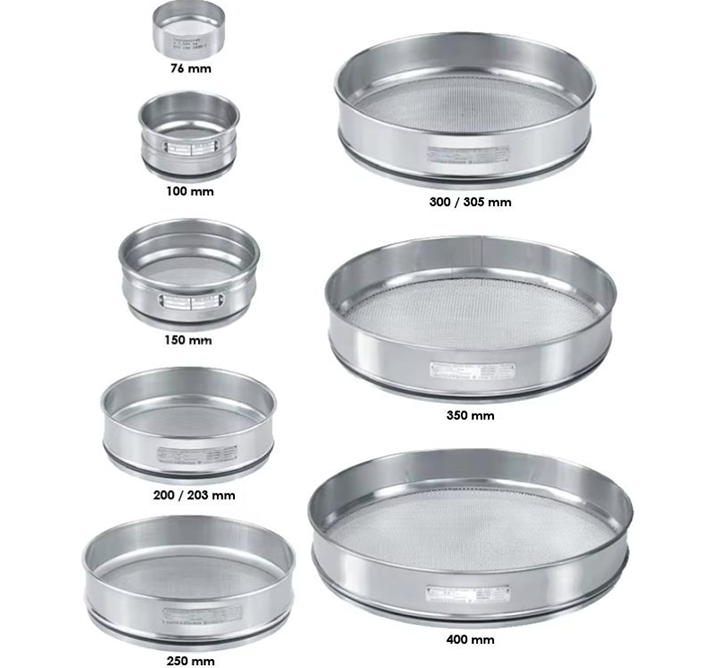
Standard test sieve size affects price
| ASTM E11 Opening Size | 3/8in (9.5mm) |
| Sieve Frame Diameter | 3in (76mm) |
| Frame Height | Full-Height |
| Stacked Frame Height | 1-1/8in |
| Overall Frame Height | 1.75in |
| Material | Stainless Steel Frame/Stainless Steel Cloth |
| Backing Cloth Included | No |
| Estimated Shipping Weight | 1.0lb (0.45kg) |
The price of standard test sieves is selected based on the mesh type
| Type of mesh | woven wire |
| Diameter |
100 / 200 / 300 / 400 / 450 mm 8 / 12 inches |
| Mesh sizes | 125 mm - 20 µm |
| Frame material | stainless steel |
| Mesh material | stainless steel |
| Height |
full and half (200 / 300 mm 8 / 12 inches) height version |
The price of standard test sieves is selected based on usage
The Standard Test Sieve is suitable for a wide range of materials, including metal powders, ores, sand, cement, plastic granules, pharmaceutical powders, grain, feed, and fertilizer. The sieve mesh size and material will vary depending on the material's particle size distribution and screening requirements, which will affect standard test sieve price.ASTM standard sieves range in price from approximately $1 to $800.
Metal powders: such as titanium powder, iron powder, and copper powder. High-precision stainless steel mesh (such as 316L) is required to avoid contamination. These meshes are commonly used for particle sizes between 45μm and 300μm, and cost approximately $100-250.

Ore/Sand: such as silica sand, quartz sand, and construction sand. Wear-resistant stainless steel or galvanized wire mesh is required, with mesh sizes typically ranging from 100μm to 5mm, and costs approximately $50-150.
Pharmaceutical powders require a high-purity stainless steel sieve with a pore size of 75μm or less, complying with GMP standards. These sieves are relatively expensive, typically ranging from $150 to $300.
Grain/feed/fertilizer: For less demanding precision, brass or standard stainless steel sieves can be used. A pore size of 1mm-6mm is common, costing approximately $30-80.
Plastic granules: These include recycled plastic particles and virgin granules. They have a wide sieving range, with a common pore size of 500μm-5mm. Stainless steel sieves are suitable, costing approximately $60-120.
Standard test sieve parameters that determine price
ASTM E11 - SIEVE DESIGNATION
| Standard | Altern. | Standard | Altern. | Standard | Altern. |
|---|---|---|---|---|---|
| 125.00 mm | 5.00 | 9.50 mm | 3/8 | 425 µm | No. 40 |
| 106.00 mm | 4.24 | 8.00 mm | 5/16 | 355 µm | No. 45 |
| 100.00 mm | 4 | 6.70 mm | 0.265 | 300 µm | No. 50 |
| 90.00 mm | 3 ½ | 6.30 mm | ¼ | 250 µm | No. 60 |
| 75.00 mm | 3 | 5.60 mm | No. 3 ½ | 212 µm | No. 70 |
| 63.00 mm | 2 ½ | 4.75 mm | No. 4 | 180 µm | No. 80 |
| 53.00 mm | 2.12 | 4.00 mm | No. 5 | 150 µm | No. 100 |
| 50.00 mm | 2 | 3.35 mm | No. 6 | 125 µm | No. 120 |
| 45.00 mm | 1 ¾ | 2.80 mm | No. 7 | 106 µm | No. 140 |
| 37.50 mm | 1 ½ | 2.36 mm | No. 8 | 90 µm | No. 170 |
| 31.50 mm | 1 ¼ | 2.00 mm | No. 10 | 75 µm | No. 200 |
| 26.50 mm | 1.06 | 1.70 mm | No. 12 | 63 µm | No. 230 |
| 25.00 mm | 1 | 1.40 mm | No. 14 | 53 µm | No. 270 |
| 22.40 mm | 7/8 | 1.18 mm | No. 16 | 45 µm | No. 325 |
| 19.00 mm | ¾ | 1.00 mm | No. 18 | 38 µm | No. 400 |
| 16.00 mm | 5/8 | 850 µm | No. 20 | 32 µm | No. 450 |
| 13.20 mm | 0.530 | 710 µm | No. 25 | 25 µm | No. 500 |
| 12.50 mm | ½ | 600 µm | No. 30 | 20 µm | No. 635 |
| 11.20 mm | 7/16 | 500 µm | No. 35 |
Factors Affecting Standard Test Sieve price
Factors influencing standard Test Sieve price include material, mesh accuracy and aperture, size, manufacturing process, brand, and certification. Stainless steel, especially 316L, is more expensive than brass and galvanized steel, but offers better corrosion resistance and cleanability. Regarding mesh accuracy and aperture, fine-mesh sieves are difficult to manufacture, resulting in meshes with apertures less than 75 microns being more expensive. Regarding size, traditional 8-inch (200 mm) meshes are relatively inexpensive, while 12-inch (300 mm) and larger meshes are more expensive. Manufacturing processes such as laser welding, edge treatment, and sealing performance also impact cost. Regarding brand and certification, imported brands or products certified to ISO/ASTM standards are more expensive.
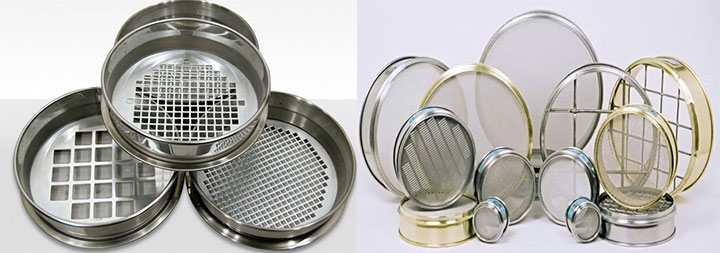
Relationship between applicable materials and equipment prices
Standard test sieves are used in the pharmaceutical industry to test the particle uniformity of raw materials; in the food industry, they are used for fineness grading of products such as flour and powdered sugar; and in the building materials industry, they are used to test the particle size of materials such as sand, gravel, and cement. Due to its ease of use and reliable data, the Standard Test Sieve has become a common testing tool in laboratories and quality control departments.
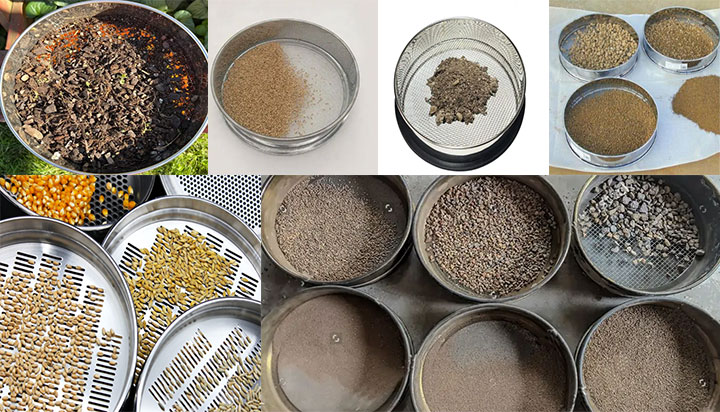
Pricing characteristics of standard test sieve manufacturers
Our factory can customize the equipment and materials of Standard test sieves according to the usage scenarios,the price is competitive. The types include perforated plates, woven wire sieves, wet-washing sieves, etc., and the materials include brass, stainless steel, etc. We can also provide laboratory test sieves and soil sieves required for specific scenarios. We provide a complete set of screening equipment from sieve frames to meet various screening needs of materials from construction to soil analysis.

Standard test sieve prices vary primarily due to material, precision, size, and manufacturing process. For example, the pharmaceutical industry requires high-purity 316L stainless steel mesh with a finer mesh, typically priced between $150 and $300. The construction industry uses wear-resistant galvanized wire mesh, priced between $50 and $150. Smaller or larger mesh sizes increase the price. Precision processes such as laser welding and edge polishing also increase the price. When purchasing, users should consider their specific needs, material properties, screening accuracy, and industry standards, striking a balance between cost and performance to ensure screening efficiency and data reliability.
-
Standard test sieve is a screening tool used for particle size analysis of materials.
-
Graphite Powder Sieving Machine
Graphite powder sieving machine is specially developed to solve the problem of graphite powder sieving...
-
Silicon powder for test sieve
Silicon powder for test sieve commonly used in various industrial applications, including electronics, metallurgy....
-
Vibro Sifter Flour
The Vibro Sifter Flour uses a motor-driven eccentric weight to generate three-dimensional vibration...
-
Vibro Sifter Baking Soda
Vibro Sifter Baking Soda is a process or equipment that uses a vibrating screen to sieve, grade, or filter baking soda...
-
Linear Vibrating Screen For Plastic Particles
Linear Vibrating Screen For Plastic Particles is used for screening and grading plastic particles...

Email:
sale@xxdahan.com
WhatsApp:
+86 15236742901
Add:
1000m West of Forest Park,Yanjin County,Xinxiang City,Henan Procince,China.

